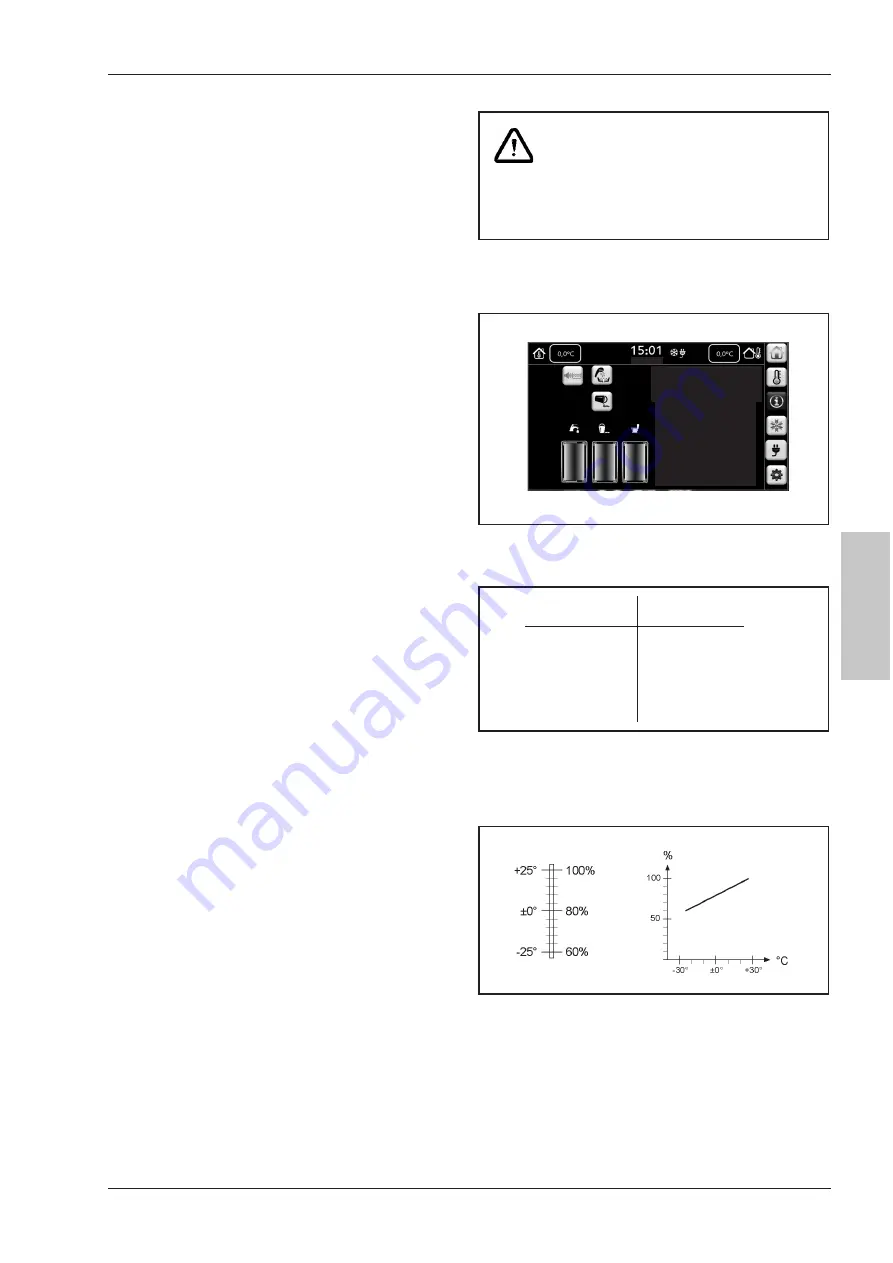
4-39
C22M-1
EN
Descriptions
Page
Descriptions – Electrical system
Battery capacity at different temperatures.
The freezing point of the battery acid at different charge
levels.
WARNING!
Battery fluid is corrosive.
Sluice all spills liberally with running
water. If there is skin or eye contact, sluice
liberally with water and contact a doctor.
Vital information on the living area’s battery
The battery’s service life is affected by how it is used.
• Avoid heavily discharging the battery. Charge the bat-
tery before it is flat.
• Fully charge the battery (at least 24 hours). The battery
charges ever more slowly as the charge grows.
• Charge the battery as soon as possible. The battery
should never drop to half its charge. Fully charge the
battery after use.
Check battery charge by reading battery voltage on the
control panel.
For battery voltage level to equate to battery charge, the
following must be taken into account:
• Battery load.
The battery’s voltage level drops with load.
Before reading battery voltage, switch off as many
lights as possible and ensure that the refrigerator is not
being powered by the 12 V system.
• Battery charging.
Ensure that the batteries are not being charged while
reading voltage (i.e. engine turned off and 230 V not
connected).
The following are guideline values at 20°C:
> 12.5 V
Battery fully charged.
12.2 V – 12.5 V Battery 50% charged.
< 12.2 V
The battery needs charging.
If the motorhome is not to be used for some time (e.g.
throughout the winter), the battery must be stored in a dry
and cool (i.e. frost-free) place.
A disconnected battery must be trickle charged every
other month.
A connected battery must be charged every other week
if the motorhome is not being used. Remember that a flat
battery is more easily damaged by freezing than is a fully
charged battery (see the table).
In cold weather, the battery is not able to supply as much
current. However, its capacity is not lost; it returns with
warmer weather (see illustration).
Batteries age; they charge less easily when old. They can
work well, but do not have the same capacity as new bat
-
teries.
Keep the battery clean!
Ensure that there is good contact at the battery’s con-
nections. To remove any oxide, clean the terminals with a
steel terminal brush. Protect the battery’s terminals from
oxide by coating them with terminal grease.
Density
Freezing point
gr/cm
3
°C
1.28 (full charge)
-67
1.24 -45
1.20 -27
1.16 -16
1.12 -10
1.10 (flat)
-7
Summary of Contents for Travelmaster 2022
Page 1: ...Coachman Travelmaster USER MANUAL EN ...
Page 2: ......
Page 8: ...1 2 C22M 1 Preface Page EN Preface ...
Page 16: ...2 8 C22M 1 Safety Page EN Safety instructions ...
Page 17: ...3 1 C22M 1 Use Page EN USE ...
Page 46: ...C22M 1 3 30 Use Page EN ...
Page 47: ...4 1 C22M 1 EN Descriptions Page DESCRIPTIONS ...
Page 98: ...C22M 1 4 52 EN Descriptions Page ...
Page 99: ...5 1 C22M 1 Maintenance Page EN MAINTENANCE ...
Page 110: ...C22M 1 5 12 Maintenance Page EN ...
Page 111: ......





































